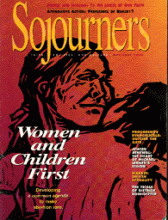Streets of Hope is a great book not only because it tells the inspiring story of the Dudley Street Neighborhood Initiative (DSNI); it's also instructive for organizers and activists who know the importance of working with, not for, people-a difficult distinction for many organizers. And even when we think our group or coalition represents all constituencies, the fact is it often falls far short.
DSNI is a truly unique, participatory, community-based organization initiated in the early 1980s. The Dudley Street neighborhood in Roxbury, Massachusetts, is one of the nation's oldest neighborhoods (dating back to the 1630s). Today it is home to approximately 15,000 African Americans, Latinos, Cape Verdeans, and a few whites. During the 1970s, the neighborhood experienced severe economic and political disenfranchisement. Land prices plummeted, buildings were abandoned, and fires raged, often set by absentee owners to collect insurance.
When the fires stopped, there were about 1,300 vacant lots, representing the largest single concentration of vacant land in Boston. These lots became unofficial city dumps, a breeding ground for rats and a hiding place for criminal activity. The neighborhood was "redlined" (denied loans) by banks, while ill-conceived housing projects fell into disrepair.
DSNI, a joint effort of community service organizations and the Riley Foundation (a charitable trust), came on the scene in 1985. The organizers of the first meeting almost blew it: They presented a plan for revitalization to almost 200 residents in attendance, most of whom felt powerless to make changes, but hoped they were wrong. Rather than thanking the planners, residents told them, "We don't see the community here." They wanted to know why they should trust the organizers, and particularly the Riley Foundation.
Interestingly, DSNI founders really thought they werethe community.
Read the Full Article
